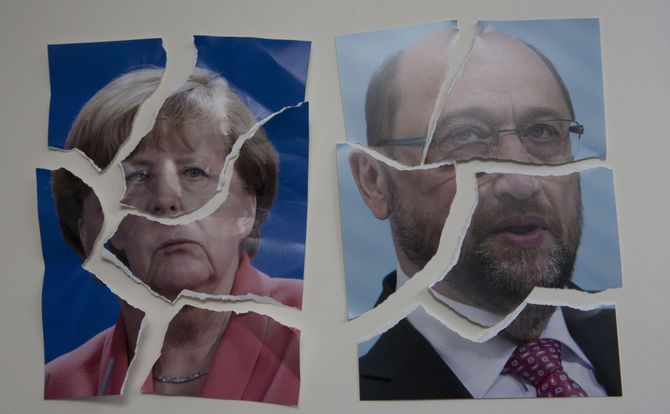The new German government: a political shambles
The coalition agreement between the CDU-CSU and the SPD in Germany is the result of broken promises and abandoned principles. If the government comes about, its policies will be tilted even further to the left. The only tangible result will be more government spending.

In a nutshell
- Germany faces a crisis of leadership. The latest coalition agreement does not solve it
A new German coalition government composed of Germany’s Christian Democrats (the CDU and its Bavarian sister party the CSU – together known as “the Union”) and its social Democrats (the SPD) was agreed on in a 178-page contract. It includes some beautiful words in its preamble, but when it comes to detailed matters of policy, the rest is mostly a list of the parties’ agendas.
However, there are some observations worth making. It appears that the CDU was primarily interested in retaining the position of chancellor. To do so, it accepted many compromises that favor the SPD, and which are certainly not in line with the wishes of most CDU voters. In one striking example, it agreed to new regulations that will limit labor market flexibility even further. During the last legislative period, government policy was already very social-democratic. Now the scales have been tipped even further in favor of the left.
Clinging to power
The SPD received the key ministries of Foreign Affairs, Finance and Justice. The contract appears to be a hodgepodge of grand desires, written to satisfy the parties’ bases and receive approval from the party boards in the case of the Union and party members on the SPD side. The intention was certainly not to do what is in the interest of the “res publica,” but instead merely to cling to power and avoid a new round of elections. The only tangible result will be more government spending to satisfy the vested interests behind the two sides.
Both groups broke promises and abandoned their principles.
This coalition, if it comes about, will be a shambles. Both groups broke promises and abandoned their principles on the pretext that Germany needs a government, and this coalition is the only solution. It is true that Chancellor Angela Merkel tried another coalition between the Union, the Greens and the liberal FDP. The FDP, however, had the courage and character to refuse the Union’s and the Green’s left-wing, socialist proposals.
Now it appears likely that the parties will agree to this weak coalition. However, strong opposition groups within both the Union and the SPD are already forming. It would be a toothless government with a short shelf life.
Other alternatives
Another alternative is new elections. Such an outcome, after this coalition cabaret, would produce a large amount of unpredictability, which Germans abhor. The problem is that Germany needs fresh faces to lead it. The major parties may enter new elections with the same teams, but sooner or later they will have to find new leaders.
There is a third alternative which is unlikely considering the current makeup of the parliament: a series of “coups d’etat” within the existing parties, allowing for new combinations to emerge. In fact, some voices inside the Union are already requesting Angela Merkel’s departure.
During the past eight years, the Union and the SPD avoided any forward-looking policies and maintained the status quo with a social-democratic philosophy. This created dissatisfaction and allowed space for new parties, like the Alternative for Germany (AfD). The AfD has given a voice to a wide spectrum of dissatisfied people, and eventually it will become more mature. The traditional parties will also have to reshuffle and go back to their principles.
Let’s hope that this crisis of leadership, credibility and honesty will turn into an opportunity and a new start for Germany.

